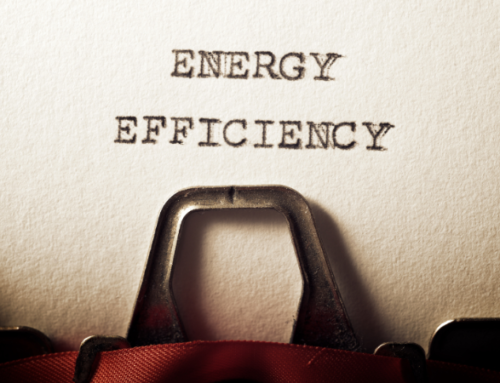This blog explores the exciting role AI plays in transforming how we generate, distribute, and consume energy. From optimizing electric grid operations to predicting energy consumption patterns, AI is not just a futuristic concept but a present-day reality reshaping the energy landscape. We delve into the impact of AI on energy efficiency, renewable energy integration, and the overall sustainability of the energy sector. Stay tuned for an exciting future.
How Has AI Influenced The Energy Sector?
Until now, AI has impacted the energy sector in three main segments: electric generation, demand response, and renewable energy. Let’s explore each of these segments in more detail below.
Electric Generation Influenced By AI
First, electric generation power plants have utilized AI technology to better optimize their operations and output. Because power plants take into account many different data points when generating power (cost of fuel, market prices, operating costs, etc.), AI models have helped engineers to better optimize the overall management of the power plants.
Demand Response
Demand response is a program instituted by many electric grid operators that rewards customers for shaving peak demand during certain times of the year in order to promote better grid reliability. AI has made headway into the demand response space, by helping DR companies better predict when their customers need to shut down operations or conserve power in order to maximize their DR benefits.
Renewable Energy
Finally, AI has helped solar and wind operators to better forecast production numbers. This technology can help to predict wind patterns based on weather and can even predict total solar production based on available sunlight.
What Energy Market Problems Can AI Solve?
The electricity and natural gas markets are quite antiquated when compared to modern technology, and the advent of AI will help to bring them into the 21st century. Let’s explore some of the dated processes in both energy sectors that artificial intelligence will help to solve.
Electricity Markets
- Inefficient demand forecasting tools
- Challenges predicting transmission outages
- Grid vulnerability to cyber attacks
- Inefficient electric grid operations
Natural Gas Markets
- Inefficient supply and demand forecasting
- Challenges with pipeline transport technologies
- Demand forecasting based on weather patterns
- Security vulnerabilities
How Can/Will AI Be Used In The Energy Sector?
There are several use cases for AI in the energy sector to help improve operational efficiency, lower costs, and promote sustainability. Let’s explore some of the unique ways in which AI will impact the future of energy.
Electric Grid Management
Electric grid operators are tasked with the responsibility of continually ensuring that electricity supply and demand are in balance. This is a constant challenge as there are many variables affecting both sides of the equation. Artificial intelligence will allow grid operators to predict electricity demand from consumers in real time so that they can dispatch generation assets to satisfy that demand. Furthermore, some AI applications that are in development will be able to automate this process, eliminating the need for human interjection.
Natural Gas Midstream Operations
The natural gas industry is dated. Many midstream pipeline operators are still managing natural gas flows via phone and email. In fact, natural gas suppliers have to physically arrange for the transport of gas across the country in order to meet their customers’ demand. AI will be able to automate many of the manual tasks that occur each day in the natural gas sector. From anticipating regional gas heating demand based on weather to automatically dispersing natural gas supplies from storage into the market on cold days, AI will revolutionize these markets.
Renewable Energy Integration
AI’s impact on the future of renewable energy will be significant. In addition to helping to predict the output of renewable energy generation like wind and solar, which are historically hard to predict, AI will play a larger role in the adoption of renewables.
As technologies improve, AI will help to integrate solar generation to enhance grid reliability. At the present time, grid operators are hesitant to rely on solar power due to its inconsistent performance. AI can help to change that through accurate forecasting.
In addition, AI will play a critical role in the battery storage sector. As batteries become more prevalent and integrate with wholesale energy markets, AI will find ways to optimize the batteries performance by charging during periods of low demand and off taking during periods of high demand.
AI Challenges In The Energy Sector
Although the future of AI in the energy sector is promising, there are still many challenges to overcome. Let’s explore some of the top challenges facing AI as it makes its way into the energy industry.
- Lack of quality data
- Data that is not centralized and hard to access
- Integration with antiquated energy infrastructure
- Cyber security risks
- Regulatory compliance challenges
- Complexity of a multi faceted industry
AI can bring many benefits to the energy sector, but these challenges must be addressed and overcome before it can transform the industry and be an effective component of change.
How AI Can Help Your Business Energy Needs
As more and more artificial intelligence technologies integrate into the energy markets, many consumers and businesses alike can benefit from its performance. If you are looking to compare business energy plans, AI will be able to help you evaluate your historical energy usage data to determine the best energy strategy for your organization.
In addition, AI can evaluate years of energy billing data to determine areas of weakness and vulnerability in your building’s energy envelope. The AI might give suggestions for energy efficiency improvements and might even be able to discover billing errors or misclassifications.
Another key aspect of AI is its ability to decipher data quickly and make accurate predictions. If your business is located in a deregulated energy state, AI might be able to accurately forecast energy market price trends so that you can decide when to lock in an energy rate and for how long. If the AI is able to forecast lower prices for the future, you might benefit from a shorter term contract.
Want To Learn More About Energy Technology?
Our firm is committed to staying ahead of the energy technology curve. In fact, we pride ourselves on our proprietary technology systems that help our customers and sales partners better manage and understand their energy portfolios. Contact us today to learn more about how we are utilizing the latest technology to help our customers win.



